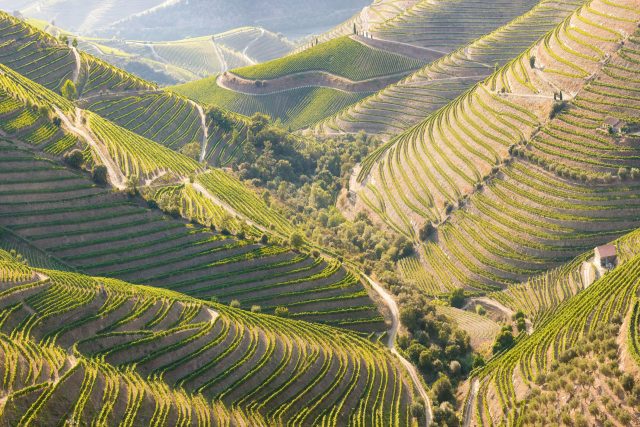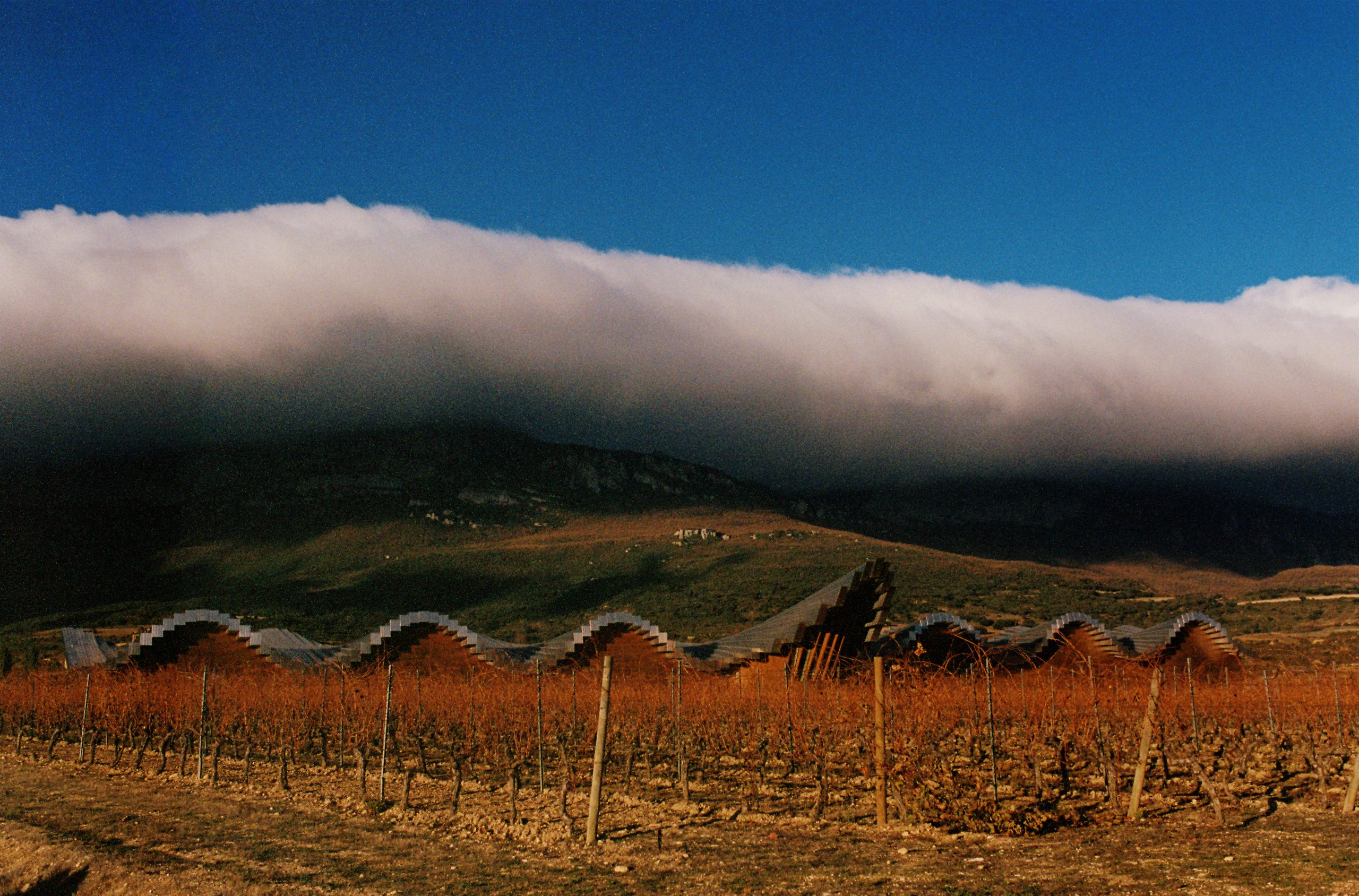Portuguese president endorses urgent Douro regulation reform
An open letter signed by 26 leading producers of Douro wine and Port producers was published in July, calling for urgent reforms to its regulatory system, the current rules of which put the economic viability of the region “in jeopardy”, db has heard.

The open letter was published as a full-page in Publico and Jornal de Noticias, Portugal’s two leading newspapers, in July.
Its signatories encompass some of the largest and most important producers such as Sogrape, Symington, Sogevinus and Cran Cruz, as well as many of the leading medium and small sized premium producers such as Ramos Pinto, Vallado, Noval, Niepoort, Vale Meão, van Zeller, Pintas and Wine and Soul.
Producers are pushing for urgent reforms to the current regulations, based on the ‘beneficio’ system, introduced in the 1930’s, which establishes the quantity of grapes that can be made into Port.
“The Douro’s regulations were designed early last century almost exclusively for Port, but Douro wines now account for almost half of total grape production. And we need more intelligent use of the rules on maximum yields per hectare,” Paul Symington of of Symington Wine Estates, one of the letter’s 26 signatories, told db this morning.
He also stressed the “desperate need” for “a scheme that supports farmers who want to create more viable vineyard holdings because 60% of the Douro’s 18,978 farmers have less than 1 hectare of vines”.
President of Portugal Marcelo Rebelo de Sousa, has now spoken publicly in the region about the open letter and endorsed the need for urgent reform of the regulatory system.
In a public speech which took place in the Douro on Saturday 2 September, Rebelo de Sousa said: “The last time that the laws for the Douro Demarcation were defined was about 100 years ago. Some adjustments were since made, but reality was very different.”
The Head of State reminded his audience that a petition exists “with over one thousand signatures calling for a review to see what regulatory adjustments are needed so that the region adapts to today and tomorrow’s reality”.
“This is in our interest and that of Portugal,” he added.
Symington said there is “growing recognition in the Douro that regulatory change is urgently needed”, and praised the President’s “powerful endorsement”.
The letter states that “nothing has been done despite repeated promises by the State”, but Symington hopes that the President’s statement will “certainly encourage the Government to act” going forward.
He warned that: “If nothing is done, the economic viability of the Douro, the world’s largest area of mountain vineyard, with an incomparable social and historic heritage, will be in jeopardy.”
Partner Content
An English translation of the original letter, published in July, reads:
The Douro Deserves Better
The Douro Demarcated Region is known for being one of the marvels of the wine world. It contains more than half of the world’s steep mountain vineyard and is classified UNESCO World Heritage. There is no comparable wine region. More than 19,000 grape farmers and 1,000 companies are committed to working these challenging vineyards, producing two renowned wines: Port and DOC Douro wines.
But over the last twenty years there has been a 25% reduction in total Port volumes to 7.8 million cases (9lt) in 2022, while the sale of Douro DOC wines has grown significantly to 5.2 million cases.
Despite these profound changes the regulatory structure has remained unchanged for 100 years and is now creating serious distortions which have impacted not only the price of grapes but also the socio-economic sustainability of the farmers, the companies, and the future of the region’s wines in international markets.
The ‘beneficio’ system – introduced in the 1930’s – establishes the quantity of grapes that can be made into Port and is adjusted annually depending on quality and demand. A similar system is used in the most important European wine regions. However, grapes for DOC Douro are transacted on open market and in general with excess supply.
The Douro is suffering due to the reduction in Port volumes and from an outdated regulatory system. Consequently, many grapes are sold below cost. The loss to farmers is obvious, resulting in abandonment of vineyards and depopulation of the region. This situation is further aggravated by climate change which is increasingly impacting our region.
Equally serious is that too many wines are being sold internationally at prices comparable with the cheapest wines in the world – something that would be impossible if farmers were paid a fair price. The region is indicating to consumers that the Douro produces cheap wines when nothing could be further from the truth: production costs per kg are amongst the highest in the world and yields per hectare are amongst the lowest – the consequence of the unique characteristics of the Douro Mountain vineyards.
Over the last 15 years various studies have been produced by highly reputable organisations, including UTAD (University of Trás-os-Montes e Alto Douro), and all concluded that the Douro is not sustainable under these circumstances and that regulatory reform is necessary. But nothing has been done despite repeated promises by the State.
No wine region can survive such an imbalance for long, suffering damage to its reputation and to the economy of its communities. This incomprehensible inaction is damaging one of the most historic and beautiful wine regions in the world. There are various emergency short term solutions and other structural longer-term measures. The Douro needs a strategy for the future built on a scientific basis lead by an independent body in consultation with key stakeholders of the region.
We call on the producers, farmers, and their respective associations, on the Ministry of Agriculture, the Douro municipalities, on The Port and Douro Wines Institute, to address this situation with urgency. We should feel proud of the Douro, of its people and of its wines, but currently we can only feel frustration and regret from the serious and unnecessary damage arising from inertia in altering the regulatory and institutional framework.
Signed
António Filipe, António Saraiva, Christian Seely, Cristiano van Zeller, Dirk Niepoort, Emídio Gomes, Fernando da Cunha Guedes, Francisco Spratley Ferreira, Francisco Olazabal, João Álvares Ribeiro, João Nicolau de Almeida, João Rebelo, John Graham, Jorge Dias, Jorge Moreira, Jorge Rosas, Jorge Serôdio Borges, Luís Sottomayor, Luísa Amorim, Mário Artur Lopes, Olga Martins, Óscar Quevedo, Paul Symington, Pedro Braga, Sandra Tavares, Sophia Bergqvist
Related news
Q&A: Jason Ginsberg and Mandy Chan




